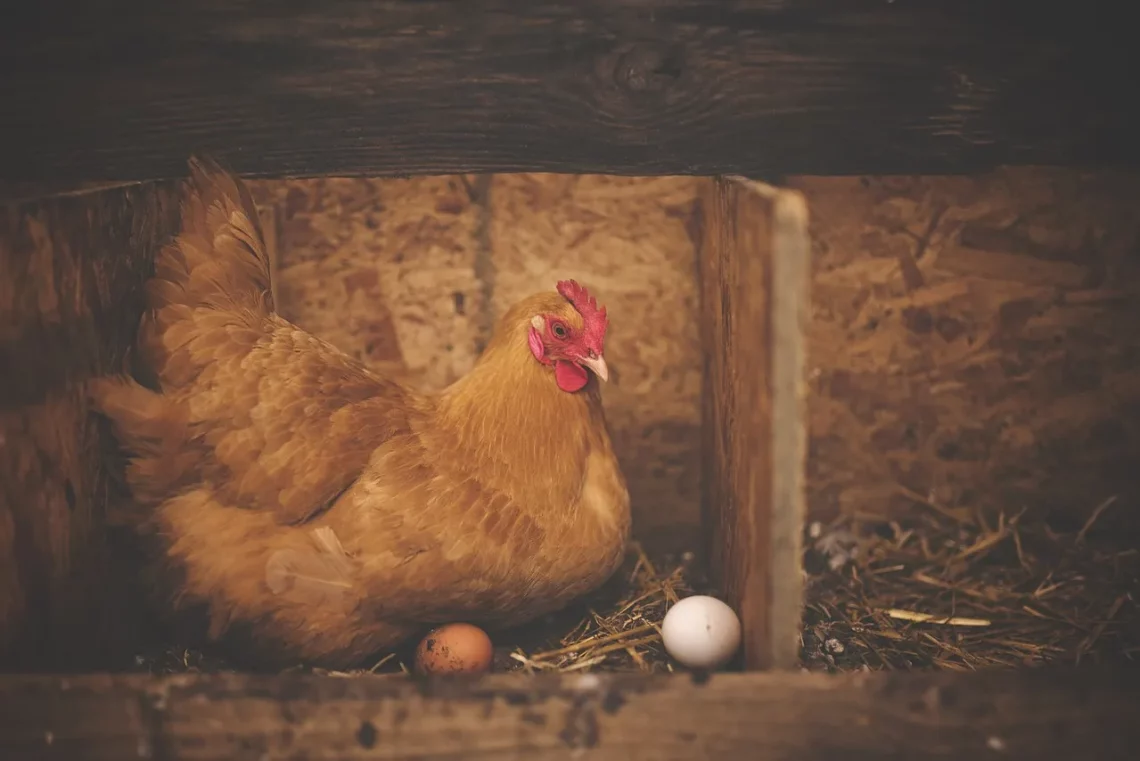
The Fascinating World of Chickens Sleeping: A Closer Look
Chickens are often underestimated creatures, with many people only recognizing them for their role in agriculture or as a source of food. However, these birds possess a complex and intriguing world that extends beyond their usual association with egg-laying and meat production. Among the curious aspects of chicken behavior is their sleeping habits, which reveal much about their social dynamics, environmental responses, and evolutionary adaptations.
Understanding how chickens sleep can shed light on their overall health and well-being. Unlike many mammals that exhibit a range of sleep patterns, chickens have unique sleeping cycles that are closely tied to their natural instincts and surroundings. Their sleep is characterized by both light sleep and periods of deep sleep, influencing not only their physical health but also their social interactions.
The sleeping habits of chickens are influenced by various factors, including environmental conditions, social hierarchies within their flocks, and even their individual personalities. Observing these behaviors can provide valuable insights for farmers, pet owners, and avian enthusiasts who wish to create a more nurturing environment for their feathered friends.
In this exploration of the fascinating world of chickens sleeping, we will delve deeper into their sleep cycles, the factors influencing their rest, and the implications of their sleeping habits on their overall health and social structures.
The Sleep Cycle of Chickens
Chickens experience a sleep cycle that is quite distinct from that of mammals. Their sleep is primarily divided into two phases: light sleep and deep sleep. During light sleep, chickens remain semi-alert to their surroundings, allowing them to be aware of potential threats. This state is important for their survival in the wild, where vigilance is crucial to avoid predators.
In contrast, during deep sleep, chickens enter a more restorative state. This phase is characterized by reduced muscle activity and a slower heart rate, allowing their bodies to recover and rejuvenate. Interestingly, chickens can also exhibit a unique behavior known as “roosting.” When roosting, chickens perch on elevated surfaces, which provides them with a sense of safety while they sleep. This instinctual behavior stems from their wild ancestors, who would seek higher ground to escape ground-based predators.
The duration of a chicken’s sleep cycle can be influenced by several factors. Chickens are diurnal animals, meaning they are active during the day and sleep at night. The length of daylight and darkness can significantly impact their sleep patterns. For instance, during longer daylight hours, chickens may sleep less, while shorter days can encourage longer periods of rest.
Additionally, age plays a role in the sleep cycle of chickens. Young chicks tend to sleep more frequently and for longer durations compared to adult chickens, who may have more irregular sleep patterns. Understanding these nuances in their sleep cycles can help chicken keepers optimize their living environments to promote better sleep and overall health.
Environmental Influences on Chicken Sleep
The environment plays a crucial role in determining the quality and duration of sleep that chickens experience. Factors such as light, temperature, and noise can significantly impact their ability to rest effectively.
Light is one of the most critical environmental factors for chickens. They are sensitive to changes in light intensity, which can trigger hormonal responses that regulate their sleep-wake cycles. For instance, providing a consistent light schedule can help establish a routine, allowing chickens to anticipate sleep and wake times. Conversely, abrupt changes in lighting, such as sudden bright lights during nighttime, can disrupt their sleep and lead to stress.
Temperature is another vital element influencing chicken sleep. Chickens are warm-blooded animals and require a comfortable temperature range to sleep well. Extreme heat or cold can lead to discomfort and restlessness. Providing adequate shelter, ventilation, and bedding can help mitigate temperature extremes and create a more conducive sleeping environment.
Noise is often an overlooked factor affecting chicken sleep. Chickens are naturally alert creatures and can be disturbed by sudden sounds, such as loud machinery or other animals. Creating a calm and quiet environment can help chickens feel secure and promote better sleep.
Furthermore, social dynamics within the flock can also influence sleep quality. Chickens establish a pecking order, and dominant birds may take prime roosting spots, leaving subordinate chickens with less favorable sleeping arrangements. This hierarchy can lead to stress and sleep disturbances for lower-ranking birds.
By understanding these environmental influences, chicken keepers can implement strategies to enhance their flock’s sleeping conditions, ultimately contributing to their health and well-being.
The Impact of Sleep on Chicken Health
Sleep is vital for the overall health of chickens, influencing their physical, mental, and social well-being. Just like humans, adequate sleep is essential for chickens to maintain their immune systems, energy levels, and overall vitality.
Lack of sleep can lead to a range of health issues. Chickens that do not get enough rest may become more susceptible to illnesses, decreased egg production, and increased stress levels. Chronic sleep deprivation can also affect their behavior, leading to aggression or anxiety within the flock.
Furthermore, sleep has a significant impact on a chicken’s growth and development. Young chicks, in particular, require ample sleep to support their rapid growth rates. Insufficient sleep can hinder their development, leading to long-term health consequences.
In addition to physical health, sleep also plays a crucial role in mental well-being. Chickens are social creatures, and their interactions with one another can be influenced by their sleep patterns. Rested chickens are generally more social, engaging in normal behaviors such as foraging and grooming. Conversely, tired or stressed chickens may isolate themselves or exhibit abnormal behaviors.
Maintaining a proper sleep schedule and environment can help ensure that chickens remain healthy and happy. Chicken keepers should monitor their flock for signs of sleep disturbances and make adjustments to their living conditions as needed. This proactive approach to managing sleep can lead to a more harmonious and productive flock.
Understanding Chicken Behavior During Sleep
Observing chickens during their sleep can provide fascinating insights into their behavior and social dynamics. Chickens exhibit various behaviors while sleeping, including vocalizations, movements, and even dreams.
During light sleep, chickens may occasionally vocalize, producing soft clucking or cooing sounds. These sounds can serve as a form of communication with other flock members, indicating that they are at ease and not in immediate danger. Conversely, if a chicken senses a threat, it may wake quickly and alert the rest of the flock.
Chickens are also known to engage in unique movements while sleeping. For instance, they may shift positions, fluff up their feathers, or even stretch their wings. These behaviors are generally harmless and can be attributed to their natural instincts as they adjust to comfort while roosting.
Interestingly, there is evidence to suggest that chickens may experience dreams, similar to mammals. While research on this topic is still limited, studies indicate that birds, including chickens, exhibit rapid eye movement (REM) sleep, which is associated with dreaming in humans. This intriguing possibility adds another layer to our understanding of chicken behavior during sleep.
Overall, observing chickens during their sleep can enhance our appreciation for these remarkable creatures. Their behaviors reflect a complex social structure and a deep connection to their environment, highlighting the importance of providing them with a safe and comfortable space to rest.
In conclusion, sleep is an essential aspect of chicken life that encompasses various factors, from environmental influences to the impact on health and social dynamics. Understanding the intricacies of chicken sleeping habits can lead to better care practices and a deeper appreciation for these fascinating birds.
**Disclaimer:** This article is for informational purposes only and does not constitute medical advice. For any health-related concerns regarding chickens or other animals, please consult a qualified veterinarian.




